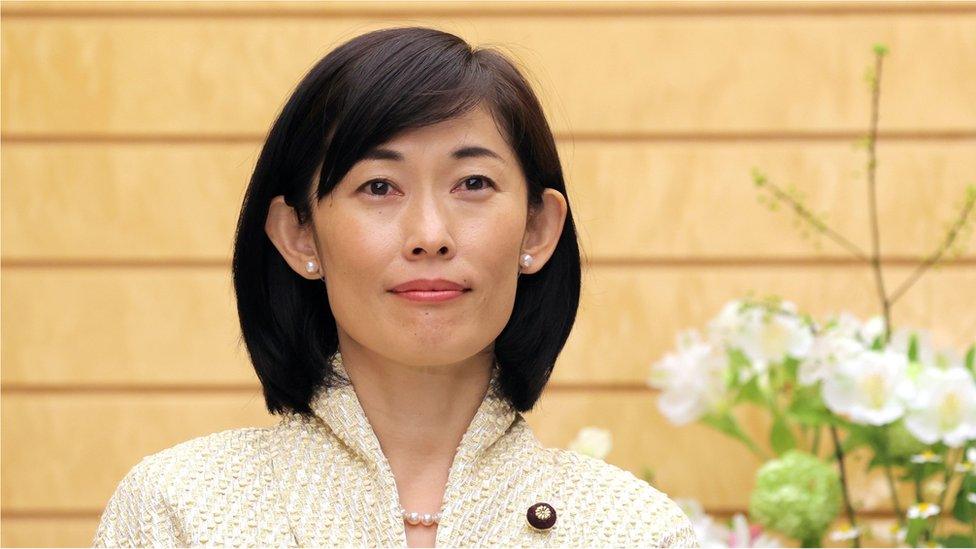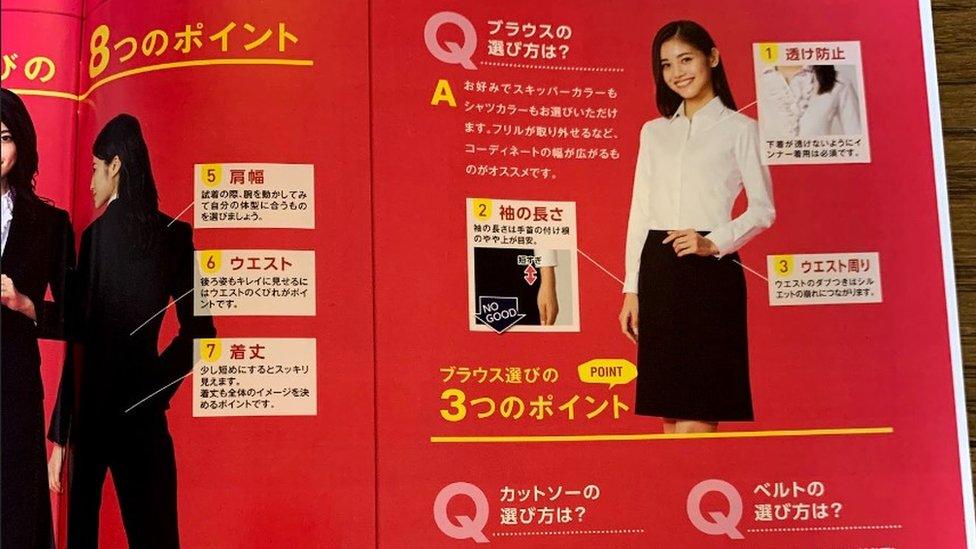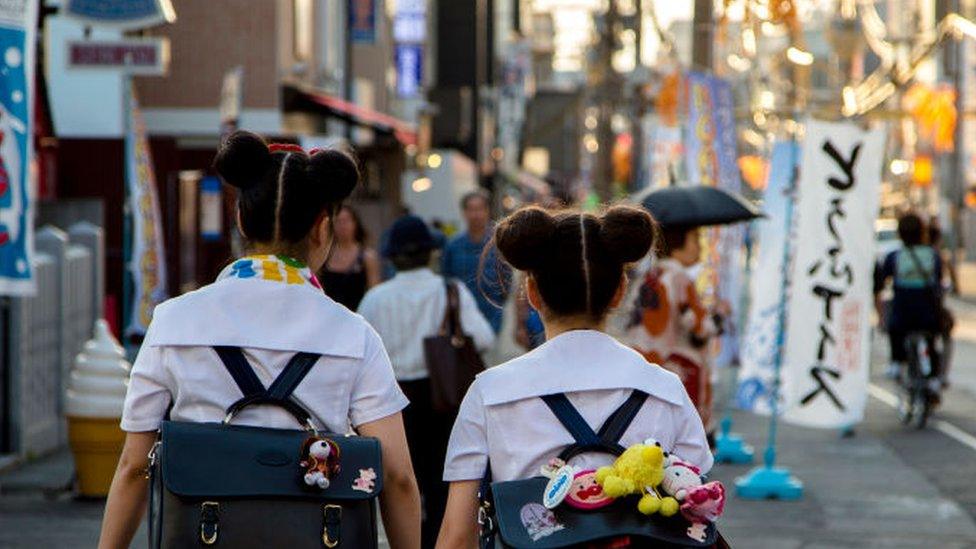Japan gender equality minister opposes change on separate spouse surnames
- Published

Tamayo Marukawa said it was a "personal belief" that would not affect her duties
Japan's minister for women's empowerment and gender equality has joined a group of lawmakers opposing a legal change to allow married couples to have separate surnames.
An 1896 law in Japan says married couples must adopt the same surname.
Campaigners have long argued that this is discriminatory as most couples end up using the husband's surname.
Tamayo Marukawa said her opposition was a "personal belief" that would not affect her duties, media reports say.
"My role is to help create an environment where the public can deepen their discussions [on the issue]," she said in response to a question from an opposition lawmaker this week, according to the Asahi Shimbun newspaper.
Ms Marukawa was one of 50 people from the ruling Liberal Democratic Party (LDP) to sign a letter last month asking members to reject in their local assemblies a written opinion favouring a policy change.
Written opinions adopted in local assemblies can help to build momentum for debates in parliament.
A challenge over the issue was previously brought to the Supreme Court in 2015. The case was brought by three individual women and one couple in a civil partnership, who argued that the law was unconstitutional, discriminatory and archaic.
But the court upheld the law, saying it did not violate the constitution.
Judge Itsuro Terada noted at the time that among the Japanese there was already informal use of maiden names, which eased the impact of the law. He said it was up to lawmakers to decide on whether to pass new legislation on separate spousal names.
Ms Marukawa uses her maiden name at work, but her legal, married surname in official documents.

You might be interested in watching:
In Japan, many men still want their wives to stay at home rather than have their own careers as well, says the BBC's Mariko Oi
- Published17 January 2021

- Published16 December 2015

- Published8 November 2019

- Published17 February 2021
